
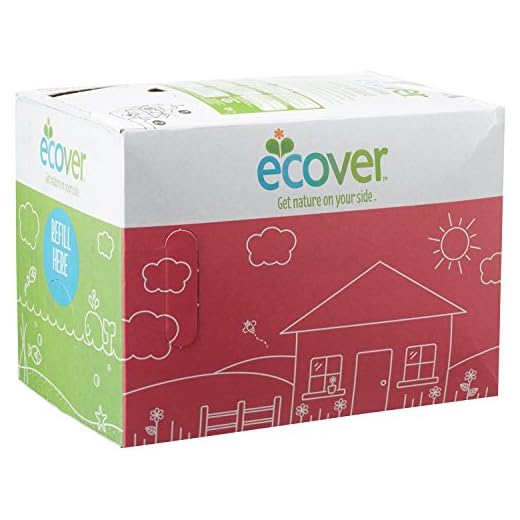
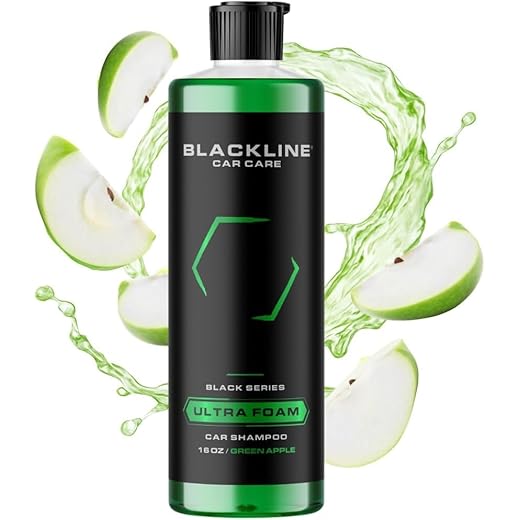

For optimal performance during cleaning tasks, I recommend using a specialised cleaning agent specifically formulated for high-powered units. These products can effectively tackle tough grime, grease, and stains, ensuring a remarkable clean without damaging the machinery.
Look for biodegradable options, as they are both environmentally friendly and tough on dirt. Brands like Krud Kutter and Simple Green offer excellent choices. Always follow the manufacturer’s guidelines regarding dilution rates to ensure the safety of both your device and the surfaces being cleaned.
Additionally, consider your cleaning objectives. If you are focusing on vehicles, a gentle formula designed for automotive surfaces is advisable. For outdoor surfaces like patios and decks, a deck cleaner will provide the required power to remove mildew and algae effectively.
Remember to conduct a patch test on inconspicuous areas before applying any cleaning solution broadly. This will help prevent potential damage to surfaces. With the right product, you’ll enjoy enhanced cleaning results and prolong the life of your equipment.
Understanding Types of Soaps for Pressure Washers
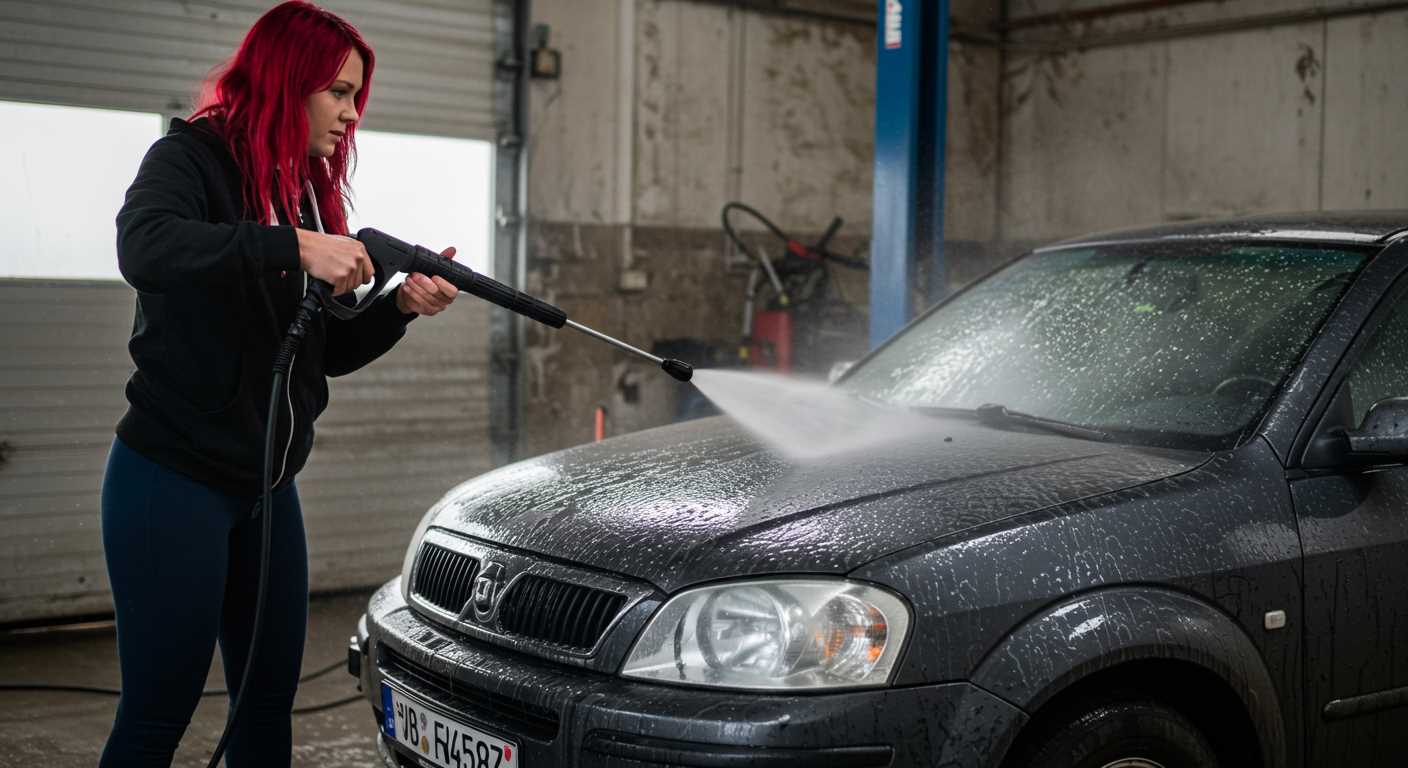
Choosing a cleaning liquid requires a clear understanding of the desired application and surface type. For tough stains, opt for an alkaline cleaner that effectively breaks down grease and grime. Acidic options work wonders on mineral deposits and rust, especially on hard surfaces like concrete.
For vehicles, biodegradable solutions provide a safe option that doesn’t harm the paintwork or environment. Pay attention to concentrated formulas; they often yield better results and are more cost-effective in the long run. Ensure the chosen product is compatible with your machine to avoid damaging internal components.
Surfing through various options, always check for specific labels – multi-surface cleaners offer versatility, while specialized products target particular issues, such as mildew or oil stains. Read user reviews for real-world effectiveness insights; practical feedback can guide your decision-making process.
Don’t overlook the ecological impact. Many manufacturers now offer eco-friendly lines that still deliver powerful cleaning capabilities without harmful chemicals. Always adhere to manufacturer recommendations for dilution ratios to preserve machinery integrity while achieving optimal cleaning results.
Experimenting with a few different brands might yield superior performance on your surfaces. Testing how a product interacts with materials like wood, metal, or plastic can lead to better results, so feel free to adapt your approach based on specific challenges faced during cleaning tasks.
Choosing Biodegradable Solutions for Eco-Friendly Cleaning
Opt for biodegradable formulations crafted from natural ingredients to minimise environmental impact. These products break down more quickly and safely in soil and water. Look for labels indicating eco-certifications, such as the EcoLogo or Green Seal, which assure adherence to strict environmental standards.
Key Ingredients to Consider
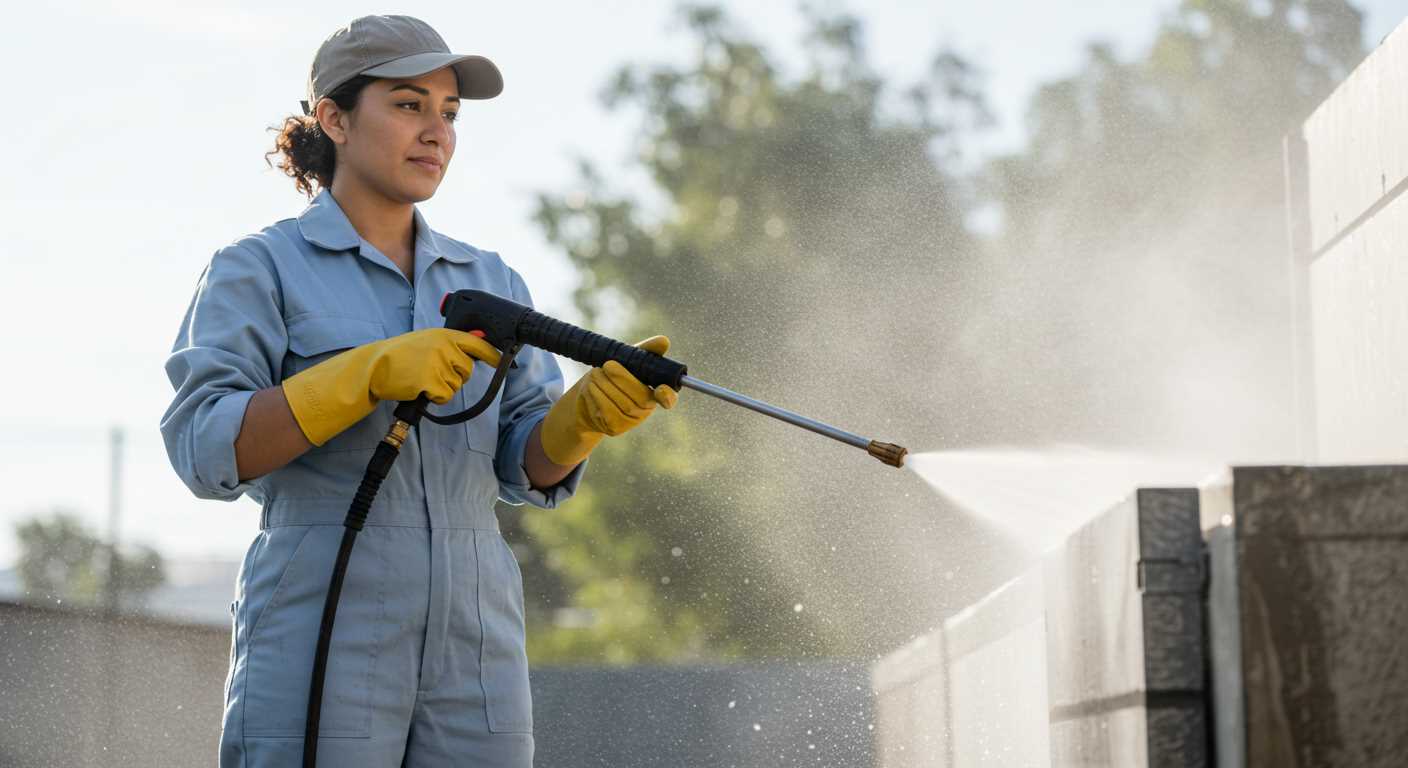
Coconut or palm oil derivatives often serve as effective bases in these formulations. These natural sources not only cut through grease and grime but also decompose rapidly. Besides, you might find plant-based surfactants like sodium lauryl sulfate as gentle alternatives that maintain cleaning potency while being environmentally responsible.
Packing and Dispersal Methods
Select products that utilise minimal packaging and encourage biodegradable materials. In some cases, concentrate forms can reduce waste and allow for packaging that is easier to dispose of without harming nature. Furthermore, consider solutions designed for low-pressure applications if available, which often need less water and reduce runoff of chemicals.
Soap Concentrates: When and How to Use Them
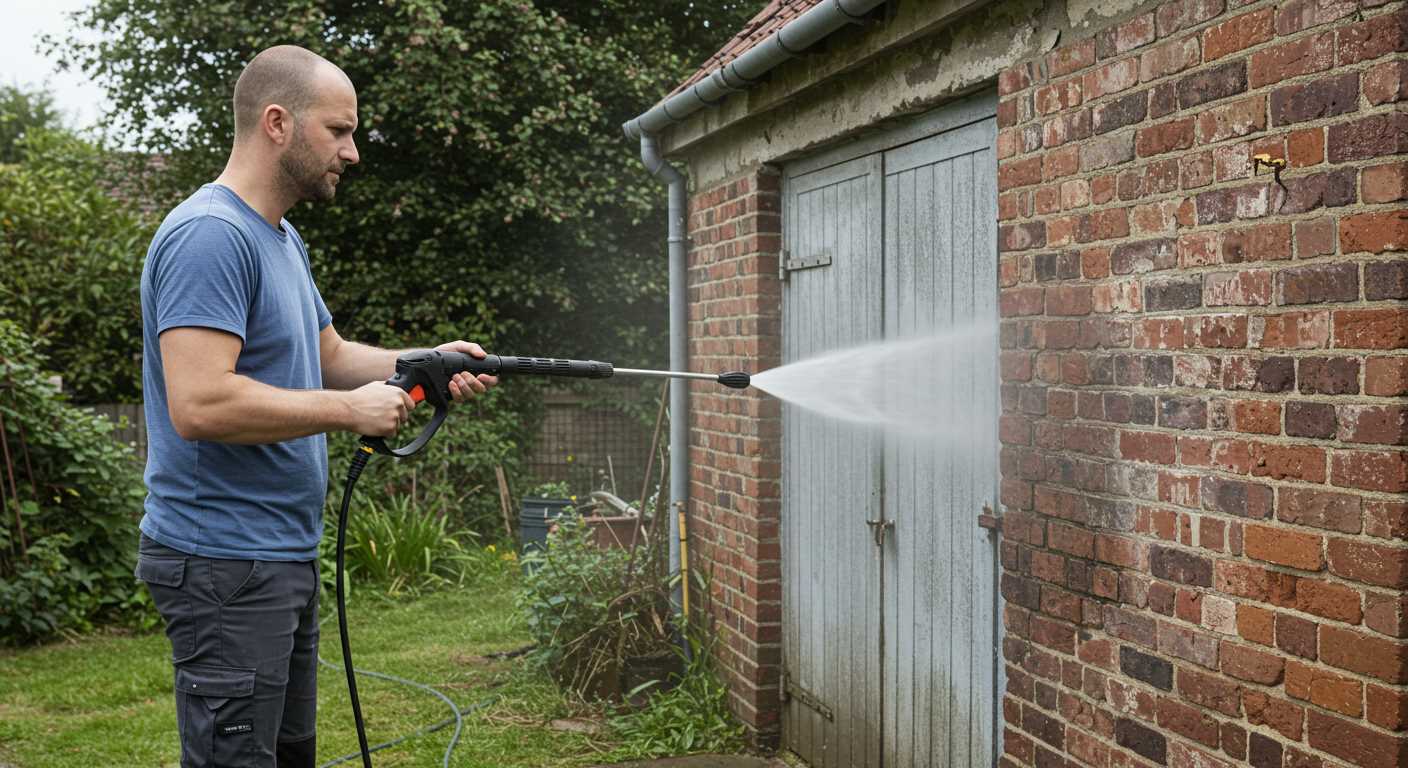
For optimal results, select concentrated formulations that suit the task at hand. These powerful agents allow for effective cleaning while minimising water consumption. I recommend using them particularly for tough stains, grease, and grime that regular solutions cannot handle.
To prepare concentrated cleaners, dilute them according to the manufacturer’s specifications, typically 1:4 or 1:10 ratios. Always add the concentrated cleaner to water, not the other way around, to avoid excessive foam and ensure even distribution.
Utilise a downstream injector or a specific attachment on your equipment for applying these concentrates. This method ensures that the cleaner is mixed properly with the water before it reaches the surface, enhancing cleaning efficiency. Pay attention to nozzle selection; a wide-angle nozzle is usually best for applying cleaning agents.
After letting the cleaner dwell for a few minutes–enough time for it to break down contaminants–rinse the surface thoroughly using clean water. This step is crucial to avoid residue build-up. If the surface still appears dirty post-rinse, repeat the application process until satisfactory results are achieved.
For fleet and industrial applications, consider investing in a higher-capacity concentrate designed for equipment like mine. Their high-performance solutions can handle larger jobs efficiently.
Always follow safety protocols, including wearing gloves and goggles, when handling concentrated formulations, as they may contain potent chemicals that can harm skin or eyes. Disposal should align with local regulations to maintain environmental integrity.
Compatibility of Soaps with Different Pressure Washer Models
Each model of cleaning equipment has specific requirements, making the selection of a suitable cleaning agent crucial for optimal results. Always check the manufacturer’s recommendations for the most effective products that are safe for your unit.
For electric units, choose low-pressure formulations that effectively tackle dirt without risking damage. Many brands manufacture agents specifically designed for use with electric machines that can safely apply suds without overwhelming the system.
On the other hand, gas-powered variants can typically handle more robust products, allowing the use of stronger concentrations for tough stains. These units usually work well with thicker liquids or foam that can be applied at high pressures, enhancing cleaning efficiency.
Foaming Agents and Their Compatibility
Foaming agents should be compatible with your model’s attachment system. Many brands offer dedicated foaming nozzles or adapters for their cleaning solutions, ensuring complete compatibility. For instance, models that feature dedicated soap tanks often require specific formulations designed to interact with the internal mechanics effectively.
It’s advisable to test a small portion of the surface first, especially when trying a new formula, to ensure compatibility and to avoid any adverse reactions with the unit’s materials.
Concentrated Versus Ready-to-Use Solutions
Concentrated formulations allow for versatility depending on the task at hand, but ensure your equipment supports dilution rates. Some pressure washers may not function properly with overly diluted mixtures, so adhere to the manufacturer’s dilution instructions. Conversely, ready-to-use choices simplify the process and eliminate guesswork, ideal for those who prefer convenience over precision.
Ultimately, matching the right formula with the specific model ensures an effective cleaning experience while prolonging the lifespan of the equipment. Always err on the side of caution and refer to your unit’s guidelines before deciding on a particular product.
Safety Precautions When Using Cleaning Solutions in a High-Pressure System
Always wear personal protective equipment (PPE) such as goggles, gloves, and masks while applying cleaning agents, to prevent skin and eye irritation from splashes. Ensure you’re working in a well-ventilated area to avoid inhaling harmful fumes.
Here are key safety tips for a smooth operation:
- Read the manufacturer’s instructions on both the machine and the cleaning formula before starting.
- Store chemicals away from children and pets, ensuring containers are clearly labelled.
- Avoid mixing different cleaning formulas, as this can create hazardous reactions.
- Test the mixture on a small, inconspicuous area first to check for adverse reactions.
- Use lower pressure settings when applying cleaning agents to reduce the risk of overspray and potential damage to surfaces.
In case of spills, clean them immediately to prevent slip hazards. Always keep a bucket of water nearby for emergencies, particularly if you are using products that can cause burns or irritation. Make sure to rinse thoroughly after application to remove any residue that may cause harm to surfaces or plants.
Finally, dispose of any leftover cleaning solutions according to local regulations to minimise environmental impact and ensure safety for others. Regularly check your equipment for leaks or wear to maintain safety standards while operating.
Comparing Cost-Effectiveness of Various Soap Brands
In my experience testing numerous brands, I’ve found that cost-effectiveness greatly varies among different cleaning formulations. Selecting appropriate cleaners can directly impact both performance and budget.
Top Brands to Consider

- Simple Green – Offers concentrated formulas that are highly effective, making a single bottle last longer. This can reduce overall costs per wash.
- Krud Kutter – Known for powerful formulations targeting tough stains. This brand is often found at a competitive price, providing solid value.
- Pressure Washers Soap by Karcher – Specifically designed for compatibility with Karcher models, ensuring optimal performance, though slightly more expensive.
Evaluating Price per Use
To determine the most cost-effective option, I suggest calculating the price per application. Here’s a simple method:
- Find out the total volume of the cleaning solution in litres.
- Calculate how many applications you can obtain from that volume. Consider the recommended dilution ratios.
- Divide the price of the bottle by the number of applications. This gives you a clear idea of cost-efficiency.
This approach allows for informed decisions, ensuring that expenditure aligns with performance requirements. For large projects, opt for concentrated cleaners as they’re often more economical in the long run.
With various formulations available, it’s wise to prioritise brands that not only offer effective cleansing but also align with financial expectations. Testing smaller bottles before committing to larger quantities can also aid in assessing suitability and value.
Best Soaps for Specific Cleaning Tasks and Surfaces
For removing grease and grime from vehicle exteriors, consider using a dedicated car wash formula. These products are designed to encapsulate dirt without stripping wax coatings. Look for pH-neutral options for the best results.
Deck and Patio Cleaning
For wooden decks, a high-quality wood cleaner mixed with a brightener is ideal. This combination not only lifts dirt but also restores the natural colour of the wood. On the other hand, concrete surfaces benefit from heavy-duty degreasers, especially if you’re tackling oil stains. Products specifically designed for concrete will break down stains effectively.
House Siding and Roof Care
Vinyl and aluminium sidings respond well to specially formulated siding solutions that eliminate mildew and dirt. For roofs, a moss and algae treatment is required to prevent the growth of unwanted organisms while protecting the shingles. Ensure these solutions are safe for the materials used in your roofing structure.
Homemade Cleaning Solutions: Pros and Cons
Creating your own cleaning formulations can be a cost-effective and flexible approach. However, understanding the advantages and disadvantages is vital before proceeding.
| Pros | Cons |
|---|---|
| Customisation of ingredients allows for tailored solutions to specific cleaning challenges. | Inconsistent results may vary depending on the formulation and application method. |
| Typically more affordable than commercial varieties, especially when using common household items. | Potential for improper dilution which can either diminish effectiveness or cause damage to surfaces. |
| Environmental impact can be minimised by selecting biodegradable components. | Time-consuming to test and refine formulations to achieve desired results. |
| Availability of ingredients can be greater, as many can be sourced from local supermarkets. | Limited guidance on safety and compatibility with equipment compared to established brands. |
| The ability to control chemical exposure may appeal to those concerned with commercial product usage. | Risk of skin irritation or health hazards if ingredients are not handled properly. |
In my experience, while homemade mixtures can be practical for certain applications, it’s essential to ensure proper testing for safety and effectiveness, addressing any issues that may arise from a lack of standardisation found in commercial alternatives.









